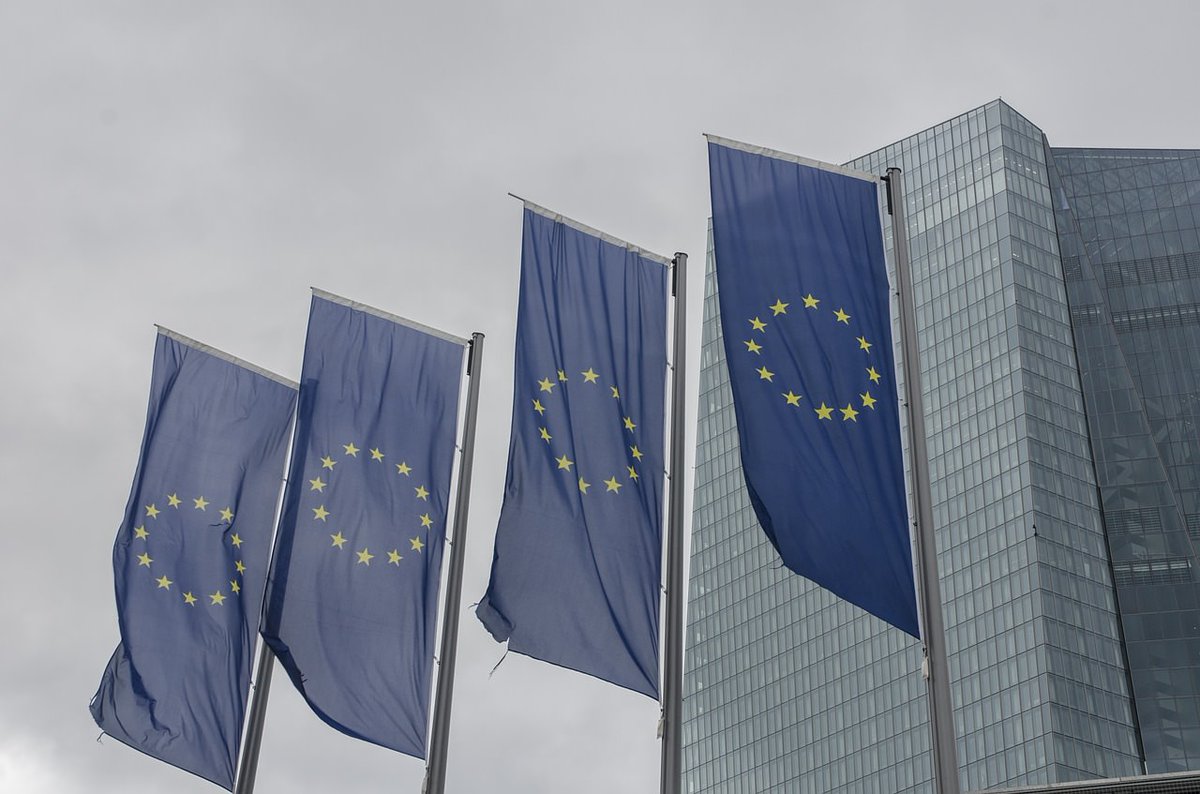
The Council of the European Union and its Parliament have reached a political agreement on the electricity market reform, which includes a transitional period until 2028, during which Poland will be able to support its coal-fired power plants.
EU flags. Picture by pixabay.com
The derogation in the agreement on the reform of the European Union electricity market design extends the permission for Poland (as well as Germany and other EU members) to apply the capacity market as a support mechanism until the end of 2028. This is the result of the actions of Polish members of the European Parliament, including Jerzy Buzek.
"The compromise reached between the European Parliament and the Council is important for two reasons," says Ryszard Pawlik, Jerzy Buzek's advisor. "The first is the possibility of maintaining the capacity market support for coal-fired power plants until the end of 2028. This is good news for Poland's energy security and reliability of power supply. This is particularly important in the context of the energy crisis, which, after all, we – as the European Union – are unfortunately still experiencing. That is also why we in the EP have been pushing hard for months for the possibility of extending this derogation," he said.
"The second reason is crucial, as the condition for extending this derogation is to present a clear plan of how and what we intend to replace the current coal units in the capacity market with once the derogation has expired, i.e. in 2029 at the latest. The idea is to use these extra few years to really engage in a thorough and actual energy transition, which will include a surge increase in RES availability together with the expansion of the grid and storage capacity. This is a great challenge, of which the new government is certainly deeply aware," professor Buzek's advisor told BiznesAlert.pl.
The reform introduces contracts for difference as the main tool to support new energy projects. The Council of the European Union will also be able to declare an energy crisis in the event of a sudden increase in wholesale energy prices. The agreement is provisional and has yet to be approved by these EU bodies.
Council of the European Union / Wojciech Jakóbik
The head of the European Commission Ursula von der Leyen at a meeting with Prime Minister Donald Tusk said that Poland by the end of the year will receive an advance for the National Reconstruction Plan (KPO) in the amount of 5 billion euros (approx. PLN 22 billion).
It should be mentioned that the payment of EU funds during the reign of the United Right was frozen due to the EU’s concerns about the state of the rule of law in Poland. However, the new government headed by Donald Tusk has declared a completely different approach to the rule of law and promised to reverse the reforms introduced by predecessors, which allowed the payment of the first funds. In November, the Commission issued a positive opinion on the changed KPO, which paved the way for Poland to the first advance.
The head of the European Commission welcomed Tusk’s plans to make the rule of law one of the priorities of his government. She also appreciated the determination of the new prime minister to address all the objections expressed in recent years by the court of Justice of the EU and the European Commission.
„I also welcome the fact that you have taken the initiative for Poland to join the European Public Prosecutor’s Office. This is excellent news, first of all for Polish citizens, but also for European partners and European citizens,” said Ursula von der Leyen.
It is interesting that the first advance is money from the RePowerEU program, designed to move away from Russian fossil fuels and invest in green technologies. The head of the European Commission added that this amount will help Poland to carry out effective decarbonization and fight climate change.
Most importantly, the European Commissioner for Budget and Administration Johannes Hahn also announced that he would find a way to provide Poland with 111 billion euros of EU funds, including from the KPO program and the Cohesion Fund.
It is worth noting that the National Reconstruction Plan for Poland is 59.8 billion euros (34.5 billion euros in loans and 25.3 billion euros in subsidies) and includes 55 reforms and 56 investments.
European Commission / Jacek Perzyński









